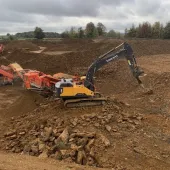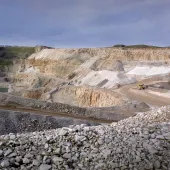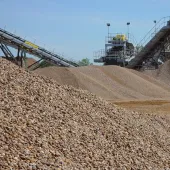Struggle to replenish aggregate reserves continues

Less than half of UK sand and gravel production in 2013 replaced by consents for new reserves
THE UK aggregates industry continues to be unable to replenish its output with new reserves. The situation is particularly acute in sand and gravel, which saw less than half of 2013’s production replaced in terms of consents for new reserves during the year.
This is just one of the conclusions from BDS Marketing’s latest analysis of planning applications and consents in the aggregates industry.
Commenting on the findings, BDS director Julian Clapp said: ‘Only in the East Midlands did we find that companies were able to fully replace the amount of sand and gravel extracted during 2013. Throughout northern England, we found no consents at all were granted during the year.’
In crushed rock, the situation looks more favourable. Analysis by the consultancy shows that consents granted for additional crushed rock in 2013 were slightly more than extraction. However, three major consents for more than 10 million tonnes each, have tended to distort the situation.
These three developments alone represent two-thirds of all new reserves granted in the year. Only in the South East, West Midlands and Scotland have aggregates companies been able to replenish crushed rock reserves extracted in 2013.
The vast majority of quarries – more than 95% – will have seen reserves lower at the end of 2013 than at the start of the year.
According to BDS, the situation does not look likely to improve in the short term. Outstanding planning applications submitted last year for sand and gravel reserves represent just a half of annual production.
In addition, few applications were submitted in 2013 for additional crushed rock reserves. These represent little more than four month’s annual production.
‘One major application has been submitted in Wales for additional crushed rock reserves, but elsewhere, planning activity has been limited,’ said Mr Clapp.
Over the previous 20 years, BDS believe that only in 2006 has the quarrying industry more than replenished the reserves taken out during the year. In one other year, new consents granted were similar to production. However, in the other 18 years, the consultancy estimates that consented reserves failed to match production.









